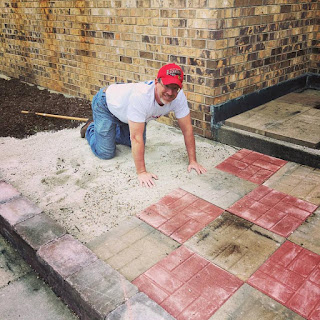Dear Family and Friends,
Each year on my birthday I typically draw attention to a
matter that has captured my heart and ask for you to donate. This year I’m asking for you to help us get
DOC (Diaspora Outreach Community) off the ground. We’ve been very candid and I’m going to be
even more candid.
Let me start with basic missionary theology. It’s called incarnational ministry. The predominant text it comes from is John
20:21 where our Lord says, “Peace to you! As the Father has sent Me, I also
send you.” Missionary theologians
interpret this text to mean that the Son of God left all glory in heaven. He
came to earth to live in human flesh.
He learned all the pain and suffering of this earth. That perfected Him for His death to atone
for our sins. In a similar way, those
who leave their homes as missionaries must take on the pain and suffering of
their host community. They must live amid
the people they serve, experience their experiences, and be perfected.
In many ways, our family has had that journey. Our return to American has been
humbling. Our past success, degrees,
skill set, and connections have had little value to most American decision
makers we have known. We’ve had to start
at the bottom when we are old. Our
bodies have failings of our age. We’ve
at times worked 4 jobs. We’ve been
greatly disappointed. We’ve had times in
the past where we couldn’t pay all our bills for months upon months. We’ve been threatened. For a time, we were on food stamps. We’ve at times been humiliated and degraded.
In the contemporary
American Church, there is no longer a scarlet letter of “A” for adultery. Now, the American Church’s scarlet letter is the”
P” for poverty. If you wear a P the
American Church will rarely give you credibility and at best sees you as a prop
or a project.
In one of our dark seasons in America, Jana in her studies
found a Harvard Business School paper on the phenomena of “Food Stamp
Entrepreneurs” (https://www.hbs.edu/faculty/Pages/item.aspx?num=50692.)
It was well reviewed and picked up by leading
magazines (https://harvardmagazine.com/2016/07/food-stamp-entrepreneurs,
https://www.inc.com/kimberly-weisul/the-surprising-connection-between-welfare-and-entrepreneurship.html, https://www.theatlantic.com/politics/archive/2015/03/welfare-makes-america-more-entrepreneurial/388598/, https://www.forbes.com/sites/hbsworkingknowledge/2014/09/02/food-stamp-entrepreneurs-how-public-assistance-enables-business-bootstrapping/#18d94e7f2579.)
It made us laugh. It gave us an intellectual tool to find hope
and to be gracious to the American Church.
Food Stamp Entrepreneurs are those who after working many dead-end jobs
realize their only hope for middle-class viability is to start something. They are poor. They have no significant credit. They have no significant savings. What they have is a good idea, initiative,
and hard work. They take in every
program they can find to get viable.
They are fed by food stamps and food banks. They get medical care through Medicaid and
cheap clinics. They find programs to
help with utility bills, school expenses, and any other need they can imagine
or find. Then with the savings to their
limited budget by the programs they invest into their idea. Many Food Stamp Entrepreneurs are
immigrants. As time goes along, they
have the typical immigrant success that outpaces the native-born
Americans. Everyone in the family pulls
together. The kids stay out of trouble. The kids have success in most matters. Their family stays strong and goes to
church. Some of my successful immigrant
friends have been Food Stamp Entrepreneurs.
As we try to get DOC off the ground that is also our
path. Theologically, it is the path of
incarnational ministry.
Yes, we could try to keep working 3 to 4 dead end jobs. Yes, we could keep hoping that some mythical
church or organization will rescue us.
Yes, we could keep hoping that one of the mythical entities would see
the Diaspora we see and act. Yet, as
business writers tell us repeatedly, we must take in the reality and then find
hope. Our hope is in the Lord’s
return. He uses the humble to prepare
the path.
Our hopes for DOC are the agendas of Diaspora communities we
know. We are not working our own
agenda.
In order to get DOC off the ground, we need resources to do
things like pay our phone bill, car expenses, internet, legal fees, etc. We don’t need help with food, housing, or
medical care. We do need help with the
extra expenses that come with having a disabled child. If you want to make a donation that will
matter now is the time. If you want to
support a ministry that truly is immigrant-focused, immigrant-led, and a well-researched
model of immigrant success DOC is a great option.
If you would like to contribute towards DOC for my birthday,
simply write a check to Cornerstone Christian Church and put Diaspora Outreach
Community in the memo. Send the check
to
Cornerstone
Christian Church
312 Geneva
Road
Glen Ellyn,
IL 60137
Asante sana. Webale
nyo. Murakoze cyane. Thank you very much.


